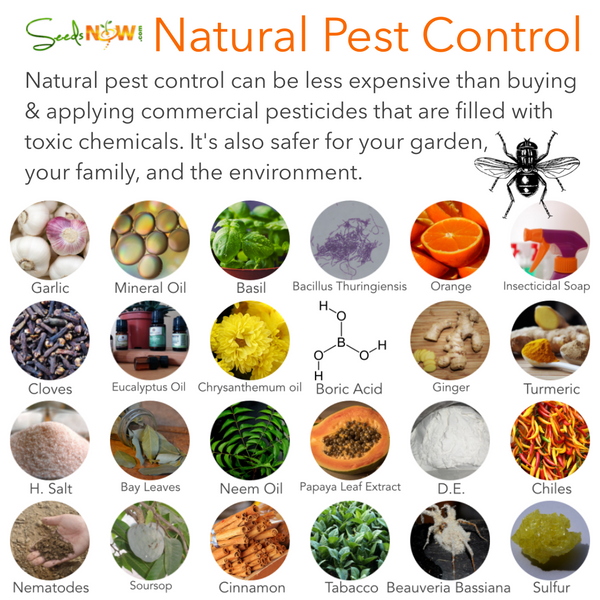The 3-Minute Rule for Pest Control
The 3-Minute Rule for Pest Control
Blog Article
Pest Control Fundamentals Explained
Table of ContentsNot known Details About Pest Control How Pest Control can Save You Time, Stress, and Money.Some Ideas on Pest Control You Need To KnowOur Pest Control PDFs3 Simple Techniques For Pest Control
Securing spaces also offers air loss, hence conserving money on energy expenses. See to it watering is not directed at the wall surfaces of the home. Water (wetness) is considered a helpful condition that will encourage insect problems and can also result in bad air top quality inside. Remove tree and/or bush branches that are touching the exterior walls or roof covering of a home due to the fact that insects, including rats and ants, frequently use them to find a means right into the home (Number 6).Get rid of or regularly emptying water-holding containers that offer mosquito reproducing sites. Check the within of your home and eliminating locations where bugs can hide and breed inside your home. Eliminate cardboard boxes and securing books and various other paper items in plastic closed containers. Keep food in sealed containers, consisting of pet food.
As soon as an insect has been managed, it does not mean the work of parasite control has actually finished. Pest control must be considered a part of routine home upkeep, specifically in states like Florida experience heavy insect stress. Regularly employing a preventative approach to pest control using surveillance can save cash and protect against damages to your home and the goods stored within.
Lawn and ornamentals (L&O). Fumigation. Business are required to have a qualified driver in each of these categories if they are using these services. What is the "certified operator?" The licensed driver is a person who has actually fulfilled the state requirements to practice bug control (Pest Control). Certified drivers have to pass a state evaluation in a particular group of parasite control.
All about Pest Control
The state meaning is an "individual holding a present parasite control operator's certification released by the division." (FS 482.021). Who is the "licensed driver in-charge?" The certified operator in-charge is accountable for the day-to-day procedures at the area of the bug control organization. This individual is accountable for choosing the strategies and products utilized in servicing your home.
What are the requirements to become a service technician? After being hired by a bug control firm, the qualified operator in-charge has up to one month to make an application for a recognition card for the brand-new service technician with FDACS. Within six months of hire, the technician check is needed to have at the very least 40 hours of documented training.
The various other hours are in undefined topics within the categories of general house insects, termites and wood-destroying microorganisms (WDO), and grass and ornamental pest management. After the first training, the technician is needed to have two hours of training yearly (Pest Control). Records should be maintained by the business and available to FDACS for review upon demand
7 Simple Techniques For Pest Control
Right here are some of the crucial advantages of this technique: Single insect control solutions are designed to resolve a specific insect concern available. It's ideal for those that are taking care of a solitary, separated problem and desire a quick resolution. In many instances, an one-time solution is more cost-efficient than a long-lasting parasite control strategy.
Parasite control specialists will take activity to remove the insects on the place. A parasite control strategy, on the other hand, entails an ongoing relationship with an insect control service provider.
Right here are the vital attributes and advantages of parasite control plans: Bug control intends deal ongoing, year-round security against a variety of insects. They are ideal for homeowners that intend to stop infestations and keep a pest-free environment. These plans normally include arranged sees from expert bug control experts that evaluate, deal with, and monitor your residential property throughout the year.
Pest control plans are positive in nature. They intend to find and address insect concerns before they end up being full-blown infestations.
Not known Facts About Pest Control
By investing in a pest control strategy, house owners gain tranquility of mind, knowing that their building is shielded year-round. The choice between an one-time bug control solution and an insect control strategy mainly depends on your special scenario.
If you're looking for long-term avoidance and peace of mind, a pest control strategy is a wise investment. Take into consideration elements such as the kind of parasites you're managing, your place, your budget, and your long-lasting objectives for parasite administration. It's frequently an excellent concept to seek advice from a trustworthy bug control firm to discuss Going Here your choices and receive professional assistance in making the ideal choice for your home.

The Ultimate Guide To Pest Control
The Learn More Here Home Shield Pro plan is a full-service alternative for larger residential properties beginning at 3,000 square feet. It's an extensive strategy that covers usual bugs that attack homes and workplaces in North Carolina.: Hassle ants, Carpenter ants, Centipedes, Cockroaches, Earwigs, Millipedes, Mice, Silverfish, and Spiders PLUS Fire Ants, Mosquitoes, Ticks, Fleas, and Painful Pests.
Just like the other plans, the Home Guard Complete deals year-round security from pests, includes exterior and interior evaluations and therapies, and treatments for exterior pests like insects, ticks, and fleas. It likewise quits termites from feeding upon and destroying your home!: Hassle ants, Carpenter ants, Centipedes, Cockroaches, Earwigs, Millipedes, Mice, Silverfish, Spiders, Fire Ants, Mosquitoes, Ticks, Fleas, and Stinging Insects PLUS Termites.
Report this page